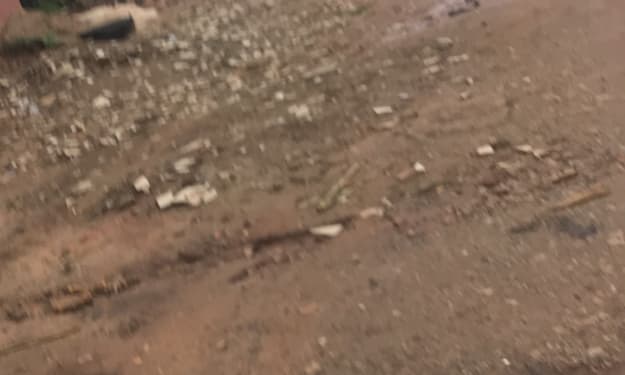Insurgency: Nothing's Right with Nigeria
Nothing's Left but to Survive

Austin Long defined insurgency to be "the use of political and military means by irregular forces to change an existing political order. These forces typically mingle with civilians in order to hide from the forces defending the political order." That’s what goes in Nigeria.
No one can say they have a life here in Nigeria, it is all about surviving minute after minute, the happenings in the country can take one’s life away within a second and no one knows where the bandits are going to hit next, would it be a market, a church, a restaurant, your home, a club, workplace, a street while you are walking.
According to Gen. Sani Abacha “Any Insurgency that lasts more than 24 hours, a government official has a hand in it.” That been said by a reputable former government officer, and nothing needs to be added. Every Nigerian understands it and thinks exactly that.
Nigeria, Africa’s most populated country and the most unstable, is in ongoing battle with insurgent groups while the government is unable (or rather unwilling?) to contain it.
From 2011, Boko Haram, one of the largest Islamist militant groups in Africa, has carried out unnumbered terrorist attacks on religious and political groups, local police, and the military, as well as on civilians in markets and villages. The number of casualties of Boko Haram–related violence skyrocketed in 2014 and 2015.
The whole world remembers the kidnapping of over two hundred schoolgirls in April 2014. The attack drew international attention to the ongoing threat from Boko Haram and Nigerian government’s incapacity to deal with it. Following negotiations between Boko Haram and the Nigerian government, assisted by the Red Cross International Committee, 103 girls have since been released.
Attacks somewhat slowed after Nigerian military with assistance from several other African countries drove Boko Haram out of several states in Nigeria’s Northeast. Still, the group controls over some villages and parts of the territory. The insurgency didn’t stop; suicide attacks and abductions of mostly women and children continue.
In February 2018, more than one hundred students were kidnapped by Boko Haram’s faction of Islamic State West Africa. They were released a little more than a month later.
In June 2022 over forty people have died after gunmen attacked a Catholic church in Ondo State; Nigeria's National Security Council has attributed the attack to the Islamic State West Africa (ISWA) group.
If you look at the map of Nigeria and imagine the blood-like red marks indicating the places where insurgency is ongoing, you won’t see any other colors but red on that map.
Factions of the Islamic State and Boko Haram have renewed insurgency in the Northeast. Farming and herding communities fight over access to land across the Middle Belt and the South. Criminal bands and cattle rustlers are present across the Northwest. Biafran independence movement in the Southeast, simmering militancy in the Niger Delta, and kidnappings nationwide. Nigeria’s military is overstretched, deployed in nearly all states of the country. The federally controlled police force is outnumbered, outgunned, and badly trained. Both institutions are marred by massive corruption and accused of severe human rights abuses.
Country is heading toward presidential election to be held in February 2023 during the tumults that have killed or displaced hundreds of thousands of people over the past decade. Nigeria’s escalated regional and local conflicts risk fueling a similar escalation in the country’s pattern of election-related violence.
What pains me, those who suffer, those who live amidst the violence are my people, simple, hardworking Nigerians, most of them so poor that cannot afford two square meals a day.
The elite, the ruling class lives perfect secure life unaffected and untouched by atrocities in the country.
The country is rich, it is only its people who are poor, so it’s appropriate to say Nigeria is rich with poor Nigerians.
About the Creator
Joseph June
Come, discover the true Nigeria with me
Each story is true story about my country and my people.
Being poor has double meaning.
One is to live in poverty.
The other is to live without hope and dreams.
I have hope and dreams.
Therefore I am rich.






Comments (1)
Why is there still so much suffering in that part of the world. Will there ever be change in our lifetime. We pray for peace and hope.